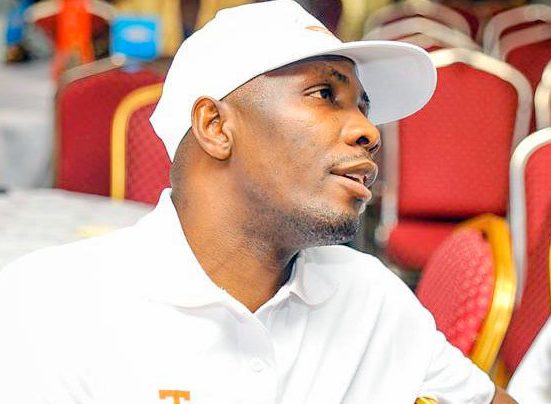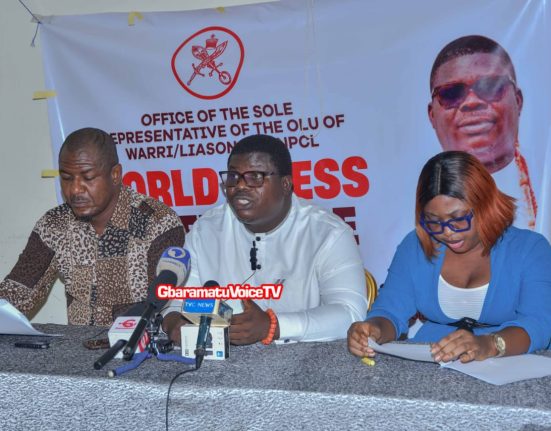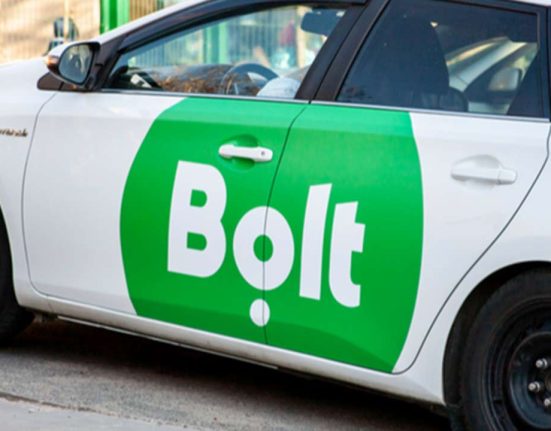By Henry Iheancho
With 8 oil producing states in Nigeria and the South-South geo-political zone having the highest number, the country is without a doubt one of the biggestoil producers in Africa.
Given how the country is benefiting from these states – Akwa Ibom, (the largest oil producing state that produces about 504,000 barrels of oil per day), Delta, Rivers, Bayelsa and Edo state, totaling 5 – it would be rational that extra care should be taken to ensure that Niger Deltans are given the utmost attention in terms of welfare and preservation. Yet, the average Niger Deltan suffers habitual poverty due to oil pollution and/or lack of adequate care or compensation.
There are several cases of oil pollution in the zone caused by ruptured pipelines which badly affected the host communities. One of the ruptured pipes happened in Ogbodo, a community near Port Harcourt, Rivers state.
An investigation by Terisa E. Turner, an Associate Professor in the Department of Sociology & Anthropology, at the University of Guelph, Ontario, Canada in collaboration with Niger Delta Women for Justice and Environmental Rights Action/Friends of the Earth Nigeria, revealed that a massive spillage of crude oil in Ogbodo led to the destruction of its tropical rain forest and the riverine ecology.
This pollution has largely affected the source of livelihood for the women. These women gather seafood from the wetlands and mangrove swamps; they make palm oil in hundreds of small factory operations, grow vegetables and gather medicinal herbs from the forests which have now been polluted.
The Shell Petroleum Development Company (SPDC), the world’s second largest oil corporation which is the owner of most of the ruptured pipelines in question, has undermined the power to be self-sustainable by the sudden destruction of the economy of Ogbodo as it has eliminated the ecological foundation of women and men’s autonomous subsistence from which these fishing people had for centuries, derived significant wealth.
According to the investigation, the incident saw to 150,000 residents of the community of Ogbodo battling a massive petroleum spill from a Shell pipeline which burst and churned crude into the surrounding waterways for 18 days until Shell clamped the pipe. The women and men struggle to survive on a day-to-day basis without drinking water and in the midst of breath-choking petroleum fumes.
Although Shell deposited ten 500-litres drinking water plastic tanks in Ogbodo. This was drastically inadequate for the 150,000 people, all of whom had depended on creeks for water.
An old rural settlement of Urhobo ethnic nationality in Ughelli-North Local Government Area of Delta State, Gana, is another area that has suffered and is still suffering as a result of oil spill. The people are predominantly farmers because of the fertile land in the area and so they depend on it to survive but a major blowout occurred when Shell’s 16 inches truck line at Ikavwe bush and a large quantity of crude oil spewed out, contaminating the land.
The spill caused pollution so catastrophic and widespread that the followingcommunities were heavily impacted. They are Opherin community – Ughelli North LGA (Delta State), Owevwe community, Ughelli North LGA (Delta State), Onah community, Ughelli North LGA (Delta State), Iyede community . Isoko North LGA (Delta State) and Emevor community, Isoko North LGA (Delta State)
Another major spill occurred at the Eriemu manifold situated in the community, both spills reportedly led to the death of an average of 5 people bi-weekly, including women and children.
An Environmental Rights Action (ERA) report revealed that the Nigerian National Petroleum Corporation NNPC’s pipeline was responsible for the oilspill that occurred in Adeje town, Warri South LGA of Delta state.
NNPC owns several kilometres of pipelines transporting premium motor spirit (PMS) from Warri, Delta state to Kaduna in the northern part of the country. The pipelines that pass through Adeje ruptured causing a huge spill.
It has destroyed the surrounding vegetation near the pipelines. It spread into nearby streams and creeks, on which the people depend for fish, water, etc. When the spill became pronounced, there was no sign of agricultural activity there.
According to the Environmental Rights Action, men and women in Adeje town who claimed to have been denied their means of livelihood like fishing and growing of food crops resorted to selling PMS on the Warri-Benin Highway.
Citizens of the community said they took to fetching and selling the product so cheaply because there were eager buyers in vehicles plying the Warri-Sapele road.
Notwithstanding, following mass protests by Ogoni people against environmental devastation and rights abuse by Shell and the Nigerian government, the transnational oil company was forced to cease operations in the Ogoni area of the Niger Delta. The facilities abandoned by Shell incommunities and farmlands continue to worsen the already endangered environment of the area as blowouts, oil spills and fires from the unattendedoil wells, flow-lines and pipelines occur frequently.
Among the Ogoni communities affected by the environmental hazards wrought by Shell is Bodo, in Rivers in whose land the oil wells of the Bodo-West oil field are located.
The affected area is surrounded by extensive network of creeks and the tidal regime extends the flow of such spills to other areas making it difficult to contain.
Incessant spills in the area have left a permanent odour of crude in the air and left surface waters shimmering with oil film. Contaminated creeks and farmlands pose serious threat to the health of indigenes, whose occupation is mainly subsistence farming and fishing. They also complain of encroachment of the exotic nipa palm in contaminate areas.
Another community largely affected by oil spillage is Baraale in Tai Local Government Area of Rivers State. The people are predominantly farmers, like other communities in the oil rich Niger Delta, decades of oil exploitation never brought them any tangible benefit. All they have to show for the oil on their land is poverty and hunger brought on by ecological damage caused by the activities of transnational oil companies.
Although it has been more than a decade since Shell stopped its operation there. However, the people are still feeling the harsh effects of the oil industry. Shell oil pipeline, which passes through the Baraale community, ruptured and started spilling crude oil into nearby forests, farmlands and houses.
To show how unfairly treated the affected communities have been, the chief of Baraale said he took steps to ensure that Shell repaired the ruptured pipeline.
He said “I reported the matter to the Shell contractors in charge of the pipeline and also to the Police that the pipeline is leaking. After that we wrote Shell a ‘Save Our Soul’ letter.
“When there was no response, I went to Shell to report at a section they call ‘Ogoni Re-entry’. They told me they have seen the letter I wrote. They said we should suffer the spillage because we caused it. They said we have been cutting pipelines and we should reap what we sown”
Further disaster struck, when the leaking oil caught fire followed by a loud explosion.
ERA said the community reported the fire outbreak to Shell but the company refused to act. Members of the community repeatedly quoted Shell officials as allegedly saying that they should suffer the impact of the disaster.
Large expanse of farmlands and forests containing crops like Plantain, Yam, Cocoa yam, Mango trees and Palm trees have been burnt down. The community’s farmland is now a wasteland. The once fertile soil has turned into a black and hard substance devoid of nutrients.
Smoke from the fire reportedly hangs over the community. Many people have fallen ill as a result of breathing the poisonous air. Some residents also complained that the smoke causes a burning sensation in their eyes and that the rainwater causes skin irritation and rashes. The soot from the fire has also polluted the community’s water wells, which constitute their only source of drinking water.
Also, Bille, a rural community in Degema Local Government Area of Rivers State, suffered great ecological devastation. The people were forced to experience the hazardous effect of oil pollution on several occasions, when spills from 7 separate pipelines spewed at different times.
The first oil spill occurred at the Awoba flow station when a large quantity of crude oil spilled into the entire EMO-PEPELYE creek causing extensive damage to the aquatic lives. The connecting creeks and mangrove forests were devastated. Although Shell’s contractors cleaned the spill, no compensation was paid and economic activities could not be restored.
The negotiation for compensation broke down between Shell and the community and other events subsequently overtook the process.
The second spillage occurred at Well 9 at Awoba flow station. An enormous amount of crude oil was discharged into the environment, with the waters of Sombriero River conveying the sludge over a wide area.
Another major spill occurred at same Well 9 at Awoba flow station. Shell’s aged pipeline exploded and a huge quantity of crude oil was rained into the eco-system.
A day after the incidence, Shell repaired the faulty facility and mopped up the affected area and paid compensation, but indigenes told ERA that the compensation was not enough given the high level of ecological damage they suffered.
The fourth spill happened when Well 13, the delivering pipeline from Well 13 to Awoba flow station exploded and set the facility ablaze and the adjacent mangrove forest was enflamed. Several fishing traps and nets around the affected area were burnt. There was a stampede and several members of the community in the nearby mangrove forests harvesting forest produces got wounded. Till this day they have seen received no compensation.
The next spill occurred at the Awoba manifold, it was as a result of rusty high-pressure crude oil pipes
The sixth which took place at the Well 12 Awoba (Bille I) was a minor spillthat occurred as a result of failure of Shell’s facility.
The biggest spillage at Well 7, Owoba flow station, which was a major disaster, occurred when a large quantity of crude oil rained into the nearby environment. ERA field research/ investigations revealed that the followingcommunities were affected, like Ama, Oru-ama, Tumba-Ama, Obow-Ama, Ikiri Kama, Aguama, and Kala Eke-Ama.
The cases reported above show how oil pollution has affected the means of livelihood of some Niger-Delta communities. In some cases it has caused severe health issues and led to death.
Many communities in the region have been suffering due to oil spillage as it affects animals as well as able bodied men and women of working class age which by extension hinders socio-economic activities in the Niger Delta.
The Federal Government has the resources and finances to ensure that there are safer methods of exploration and production of oil. It has the means to secure the technological and biological components needed to clean the Niger-Delta of the pollution so it needs to take firm and decisive action to save the region and its people.
Copyright GbaramatuVoice.
All rights reserved. This material, and other digital content on this website, may not be reproduced, published, broadcast, rewritten or redistributed in whole or in part without prior express written permission from the Niger Delta leading and most trusted newspaper, the GbaramatuVoice.
Contact: info@gbaramatuvoicenews.com or Whatsapp +2348154148945
Support Quality Journalism in the Niger Delta Region
Join us in our mission to bring development journalism, cultural preservation, and environmental awareness to the forefront. Your contribution makes a difference in the lives of the people of the Niger Delta. Donate today and be a part of the change!









